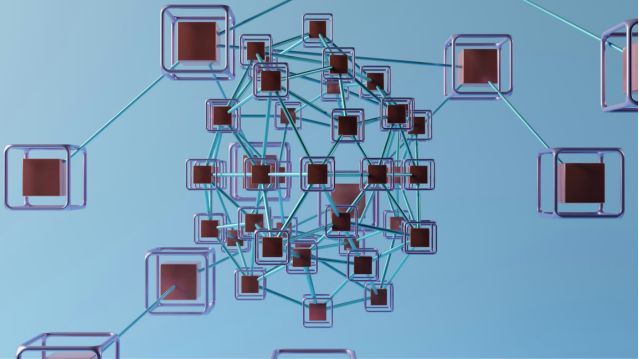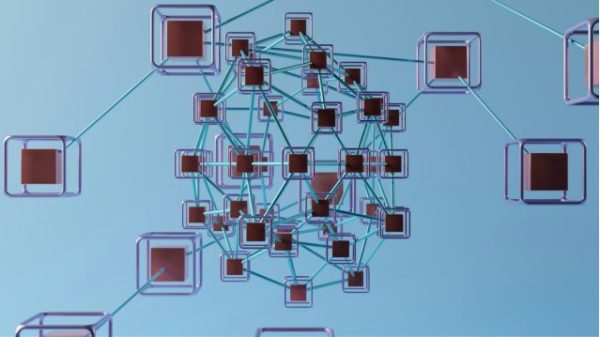
SoSECIE: Digital Engineering Transformation
Apr 30, 2019 11:00am - 12:00pm

The System of Systems Engineering Collaborators Information Exchange (SoSECIE) is a web-based seminar series organized by the Office of the Deputy Assistant Secretary of Defense (SE) in association with the National Defense Industrial Associations’s SoS Engineering committee. The goal of this series is to provide guidance, education and training for SoS and dissemination of engineering best practices within the government, military, contractors, academia and International partners.
Contact sosecie@mitre.org for questions or concerns.
Digital Engineering Transformation
Speaker: Mr. Thomas McDermott, Stevens Institute of Technology, SERC
Abstract: In June 2018, the Office of the Secretary of Defense for Systems Engineering (DASD/SE) released the Department of Defense (DoD) Digital Engineering Strategy, a comprehensive strategy for the transformation of DoD engineering methods, processes, and tools to the digital age. The strategy outlines five strategic goals for the transformation, targeted to “promote the use of digital representations of systems and components and the use of digital artifacts as a technical means of communication across a diverse set of stakeholders, address a range of disciplines involved in the acquisition and procurement of national defense systems, and encourage innovation in the way we build, test, field, and sustain our national defense systems and how we train and shape the workforce to use these practices.” These goals center on the definition, development, and use of a program “authoritative source of truth” – a government/contractor shared set of digital data and models that move away from static and disconnected program artifacts toward a fully integrated digital information exchange in order to improve the accuracy and timeliness of program decisions across the system lifecycle. This webinar presents the results of a research project that was conducted in parallel with and independent of the development of that strategy by the Systems Engineering Research Center (SERC) at Stevens Institute of Technology. The project was conducted to understand how the Digital Engineering (DE) strategy might evolve and change the way the DoD conducts acquisition of new systems and supports existing systems. A multi-disciplinary research team conducted a qualitative analysis of that transformation, using interviews of over 25 stakeholders currently involved in DE initiatives across multiple DoD agencies and NASA. These interviews were used to develop conceptual models describing what that future DoD acquisition enterprise might look like, given success of DoD DE initiatives. The research was targeted specifically on the impact of DE transformation to the DoD acquisition enterprise – the government program offices, acquisition professionals, and contractor practices that develop, operate, support, and maintain defense systems. It provides the first holistic assessment of how that transformation might evolve, and what benefits can be expected from the change. The research produced six conceptual models reflecting the future DE-enabled acquisition enterprise. The systemigram conceptual modeling tool, which includes both a narrative of change and accompanying concept diagram, was used to capture the combined views of the interviewed stakeholders. The presentation will provide an overview of the methods used and will discuss each of the conceptual models.
Bio: Thomas McDermott is currently the Deputy Director of the Systems Engineering Research Center (SERC) at Stevens Institute of Technology. His primary work focuses on the development of innovative methods and tools to facilitate multi-disciplinary analysis and learning in complex systems. Application of this work spans a number of domains, from enterprise strategy to education to social and corporate innovation to safety & security. He teaches system architecture concepts, systems thinking and decision making, and the composite skills required at the intersection of leadership and engineering. He has over 33 years of background and experience in technical and management disciplines. Tom is a graduate of the Georgia Institute of Technology, with degrees in Physics and Electrical Engineering. He developed his career in the defense electronics industry from 1984-2002, culminating in a leadership position with Lockheed Martin as Chief Engineer and Program Manager for the F-22 Raptor Avionics Team. He held research faculty and top leadership roles at the Georgia Tech Research Institute (GTRI) from 2002-2018, including GTRI Director. While Tom was GTRI Director of Research and interim Director from 2007-2013, the impact of GTRI significantly expanded, research awards doubled to over $300M, faculty research positions increased by 60%, and the organization was recognized as one of Atlanta’s best places to work. He currently teaches systems leadership, program management, and system architecture in Georgia Tech’s Professional Master’s degree in Applied Systems Engineering.
Please visit the System of Systems Engineering Collaborators Information Exchange (SoSECIE) webpage for more information and presentation archives following the event.
Details
Event
SoSECIE: Digital Engineering Transformation
- Start Date
- April 30, 2019 @ 11:00 am
- End Date
- April 30, 2019 @ 12:00 pm
- Event Link
- https://www.acq.osd.mil/se/outreach/sosecollab.html
Venue
- Address
Organizer
System of Systems Engineering Collaborators Information Exchange (SoSECIE)
- SoSECIE@mitre.org
- Website
- https://www.acq.osd.mil/se/index.html
